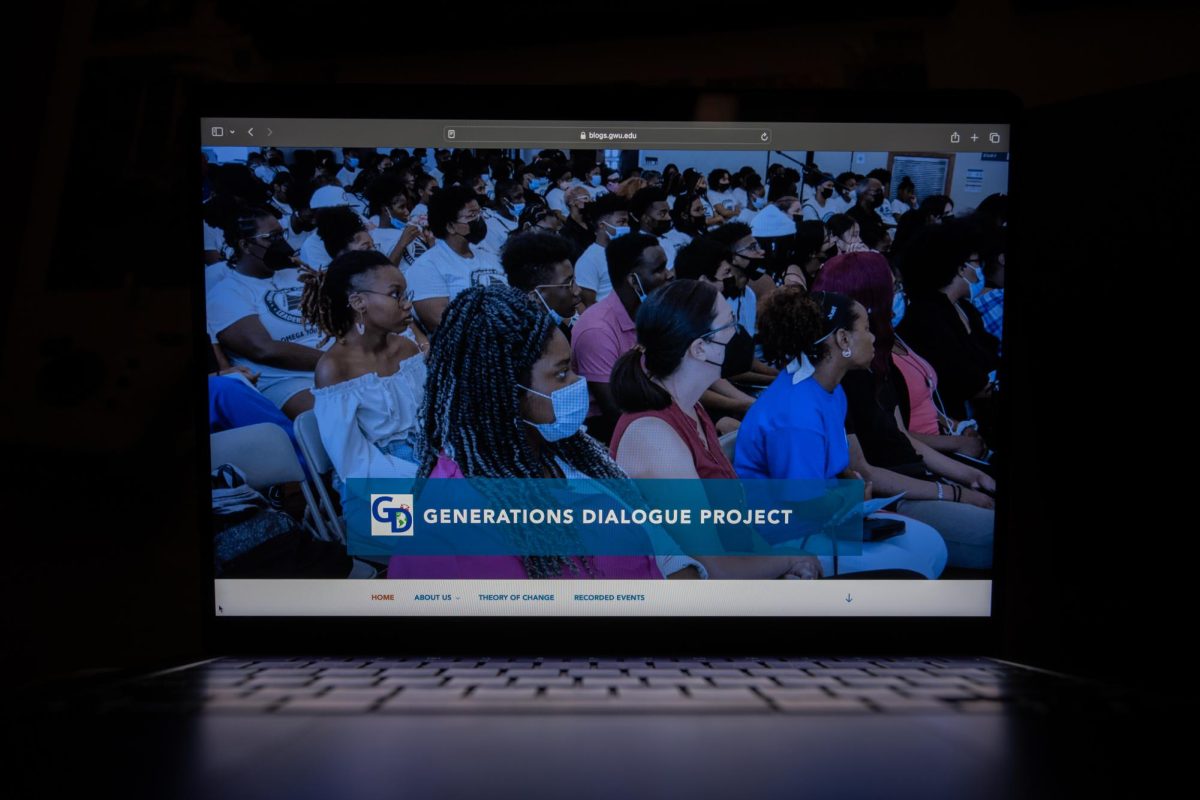Former Faculty Senate Parliamentarian Steve Charnovitz said his final senate meeting late last month was a “depressing” end to his 13-year stint in the position.
Charnovitz, who started teaching at GW in 2004, has held the position of senate parliamentarian longer than anyone else in the senate’s history. As his tenure has come to a close, he said he feels the senate has “wasted” time on resolutions to question University President Thomas LeBlanc’s leadership abilities rather than advise University leaders on policies to help navigate the COVID-19 pandemic and a changing higher education landscape.
“This is not the senate that we used to have,” he said.
But he said throughout his time as parliamentarian, he is proud of the work he has done to improve the senate’s transparency with regular updates on its website and to help quickly transition the senate’s activities online following the COVID-19 outbreak. Charnovitz said he hopes senate leaders will propose a “strategic plan” for the work they hope to accomplish in the upcoming year to maintain the senate’s efficacy.
The senate unanimously approved a resolution expressing appreciation for Charnovitz last month, touting his “tireless efforts” and “outstanding contribution” to GW.
“Professor Charnovitz has won the highest level of respect and gratitude from his colleagues, administrators and the members of the School of Medicine and Health Sciences, where he also serves as parliamentarian with great distinction,” the resolution states.
The COVID-19 pandemic
Charnovitz said once the pandemic hit he worked swiftly with Sylvia Marotta-Walters, the chair of the senate’s executive committee at the time, to develop a resolution in late March allowing senators to hold their monthly meetings online. They also designated a vice chair of the executive committee who can take over if the chair is unable to perform their duties if they contract the virus, he said.
“We passed resolutions to achieve that and we got them implemented, and that to me, that was my biggest accomplishment, was acting quickly to deal with that,” he said.
Charnovitz said holding senate meetings online instead of in person has opened up a “new means of participation” for students, faculty and staff who were previously unable to attend meetings. But he said remote operation has still been difficult for senators.
“There’s just a difference between an in-person meeting of people and the online meeting,” he said. “It changes the way people interact with each other.”
Charnovitz came under controversy at last fall’s Faculty Assembly when he advised LeBlanc that professors could not vote online under the Faculty Organization Plan. The rules require faculty to be “present” to vote – which historically has excluded remote voting – but when Charnovitz argued that LeBlanc should align with precedent, some professors said they could legitimately vote since the meeting was being held entirely online.
Arthur Wilson, the chair of the senate’s executive committee, said at the meeting he was “not persuaded” by Charnovitz’s argument. Some faculty even accused LeBlanc of taking advantage of the rule to block the survey, motioning to appeal his ruling. Charnovitz at the time called the move “unprecedented” and “frivolous.”
At Charnovitz’s suggestion, the assembly instead ultimately permitted a one-time online vote, leading to the launch of the survey that found about a quarter of faculty had confidence in LeBlanc. Faculty senators passed a resolution Friday expressing that it was the sense of the senate that virtual voting should be permitted when remote attendance is formally permitted.
An unsatisfying end
Charnovitz said senators’ decision to close debate about University leadership last month at a special senate meeting – his final meeting as parliamentarian – reflects his broader concerns that the senate has not been an effective organization recently. LeBlanc convened the meeting after the survey’s completion, and senators passed a resolution expressing “serious concerns” about administrators’ ability to uphold GW’s vision and mission.
Charnovitz said senators’ decision to close debate violated principles of freedom of speech.
Charles Garris, a faculty senator and the former chair of the senate’s executive committee, moved to delay the discussion of the resolution under consideration, arguing that the survey results were unreliable because 680 faculty members were excluded from questioning. Members of the survey team said they excluded faculty members whose primary affiliation is with another institution outside of GW, making Garris’ assertion “grossly misleading.”
After Garris’ motion to table the resolution failed overwhelmingly, senators voted to close debate. Charnovitz said their decision went against the ideals of free speech that institutions of higher education are built on.
“And yet, when professor Garris offers his resolution to recommit it back to the executive committee, they vote to close debate, which is, I think, inappropriate and should not ever be done for something this important,” Charnovitz said.
The resolution addressed the results of a faculty survey that indicated a majority of professors have lost confidence in LeBlanc’s leadership abilities.
Senators later voted during the same meeting to close debate on a motion proposed by Marotta-Walters, who argued that senators were rushing to pass this resolution. Charnovitz said the senate has never voted to close debate twice in one meeting, and it would be “unusual” for an academic body to do so.
“So the only two members in the room who had served as chair, other than the current chair, Sylvia and Charles, both said, ‘Don’t do this,'” Charnovitz said. “And then, without even a chance for debate someone says, ‘motion to close debate on Sylvia.’”
Concerns with the senate’s recent efficacy
Charnovitz said he has been disappointed by the senate’s conduct in the past year, and that they should have offered guidance to University leaders on ways to address “existential problems” facing GW. Instead, he said the senate “wasted the whole year” with various resolutions to criticize LeBlanc’s leadership abilities.
“It’s not the job of the senate to grade the president and to tell the world and the senate whether the senate thinks the president’s doing a good job,” he said.
Charnovitz said he has always felt that the senate had some “positive value add” to the well-being of the University because of its ability to share a faculty perspective with officials regarding University issues.
But during the past year when senators have developed the faculty survey on University leadership, he said he’s seen the senate lose some of its value to the University.
“I think it’s unfortunate because we live in an era of rapid change and disruption and questions of technology and competition with other universities and financial pressures on students and changing federal policies and immigration policies,” he said.
Looking to the future
Charnovitz said he hopes Sarah Binder, a professor of political science and the senate’s new parliamentarian, will hold his former position for at least the next five years.
“I was really happy, and leaving the job after 13 years, that someone as distinguished and capable and well respected as Professor Binder was appointed to succeed me,” he said.
Charnovitz said the parliamentarian’s value to the senate increases with each year of experience as they learn more about how the senate works with the Board of Trustees and faculty at large.
“These things are not obvious, there’s no manual for parliamentarians,” he said.
Charnovitz said the time the senate has spent working on the survey of University leadership has been a “misallocation” of its time this year. He said he hopes senate leaders develop a plan to tackle subjects like undergraduate or graduate education and research in the future.
“I would say to the senate: learn from your mistakes,” he said. “The senate needs to have a learning moment.”











